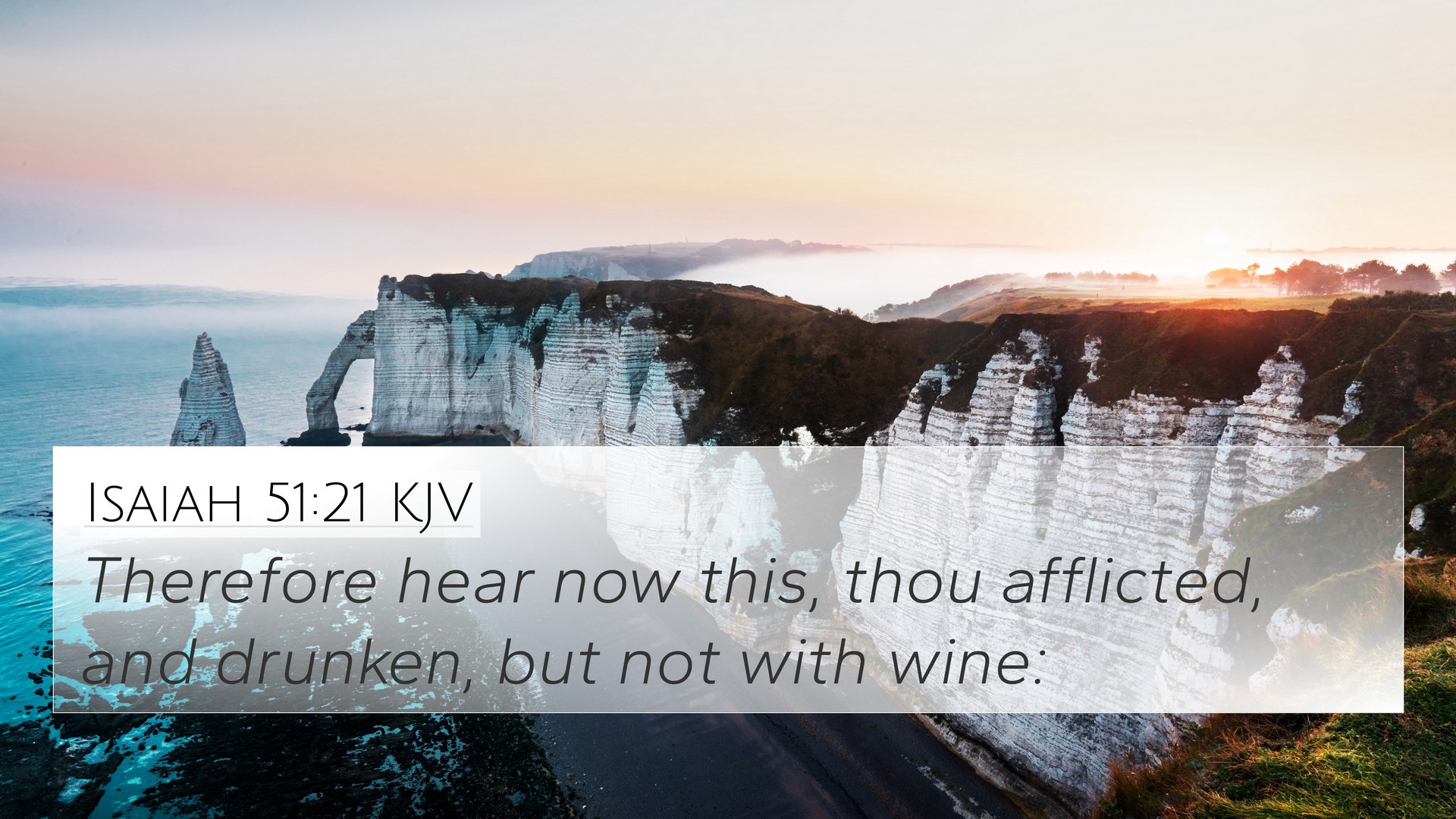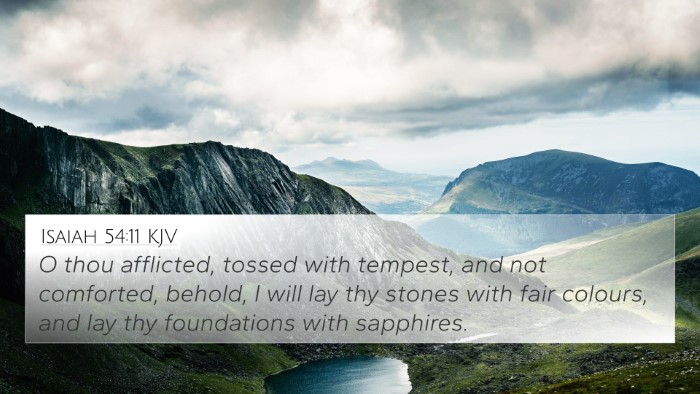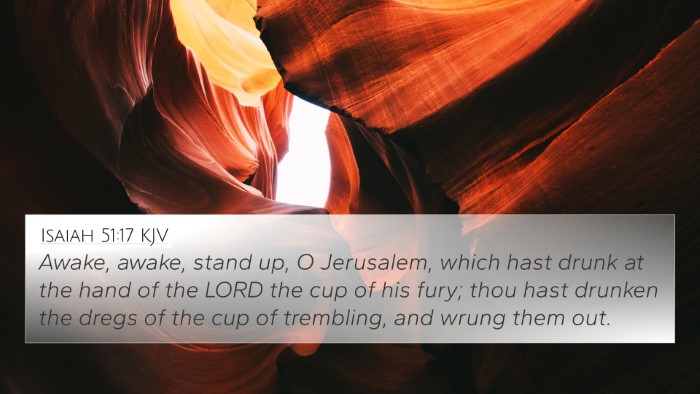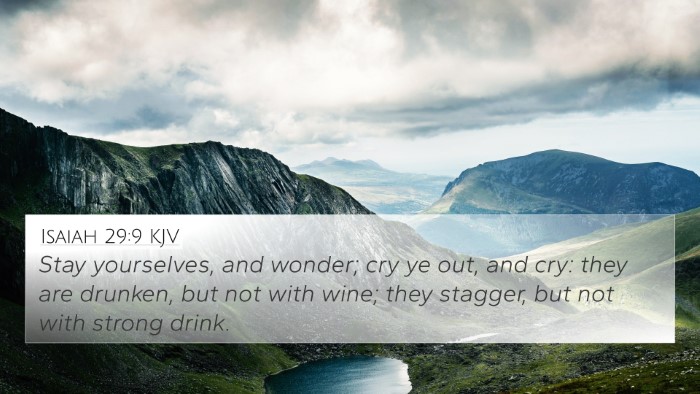Understanding Isaiah 51:21
Verse: "Therefore hear now this, thou afflicted, and drunken, but not with wine:" (Isaiah 51:21)
This verse conveys a deep message of comfort to the afflicted people of Israel, symbolically characterized as being 'drunken' but not with wine. Here, the lamentation likely refers to the overwhelming distress and suffering they have endured, akin to a person who has lost their senses due to inebriation.
Commentary Insights
Drawing from public domain commentaries, we can discern several layers of meaning:
- Matthew Henry: He highlights that God's people suffering under oppression should be reminded of their identity and hope. Despite their trials, they are still under God's care and will be vindicated. The term ‘drunken’ indicates their overwhelmed state, emphasizing that their struggles are not due to their own failings but external pressures.
- Albert Barnes: Barnes elaborates on the metaphor of drunkenness. He suggests that Israel’s sorrow clouded their judgment and perception of their relationship with God. This verse serves as a gentle reminder from God that they should not despair, as their plight is seen and will ultimately be addressed.
- Adam Clarke: Clarke points out the psychological and spiritual condition of the people—confused and afflicted by their circumstances. He also makes the point that the verses following this one provide further hope and reassurance of God’s presence and intervention.
Key Themes and Connections
This verse fits within a broader biblical narrative of hope amid suffering. Several themes emerge when analyzing Isaiah 51:21:
- Affliction and Comfort: The biblical text often juxtaposes affliction with divine comfort, as seen in passages like 2 Corinthians 1:3-4, which speaks of God as the source of all comfort.
- God's Awareness of Suffering: Similar accounts of God hearing the cry of His people can be found in Exodus 3:7, where God declares His awareness of the Israelites' suffering in Egypt.
- Drunkenness as a Metaphor: Psalm 60:3 uses the term 'drunken' figuratively as well, reflecting on the people’s state post-battle, further illustrating how situations can overwhelm and impair judgment.
- Promise of Restoration: Following this verse, God promises redemption, reflecting the theme found in Jeremiah 30:17, where God states He will restore health to His people.
Cross-References for Deeper Study
In your study, consider these cross-references related to Isaiah 51:21:
- Psalm 34:18: "The Lord is near to the brokenhearted and saves the crushed in spirit."
- 2 Corinthians 1:4: "Who comforts us in all our affliction..."
- Isaiah 40:1-2: "Comfort, comfort my people, says your God."
- Matthew 11:28: "Come to me, all who labor and are heavy laden, and I will give you rest."
- Revelation 21:4: "He will wipe away every tear from their eyes, and death shall be no more..."
- Lamentations 3:32-33: "For though he cause grief, he will have compassion according to the abundance of his steadfast love."
- Romans 8:18: "For I consider that the sufferings of this present time are not worth comparing with the glory that is to be revealed to us."
Conclusion
Isaiah 51:21 serves as a poignant reminder of God's attentiveness and care for His people amidst their trials. The concept of being 'drunken' not with wine but with sorrow emphasizes the depth of their struggle, while God's invitation to listen highlights His desire for restoration and healing. This verse, and its connections to other scriptural texts, enriches our understanding of divine comfort and hope.
Further Study Resources
Utilizing tools such as a Bible concordance, Bible cross-reference guide, and engaging in cross-reference Bible study methods can greatly enhance your ability to identify connections between various Scriptures. These resources can aid in comprehensive Bible studies, enabling deeper insights into the inter-Biblical dialogue that shapes our understanding of God's Word.





